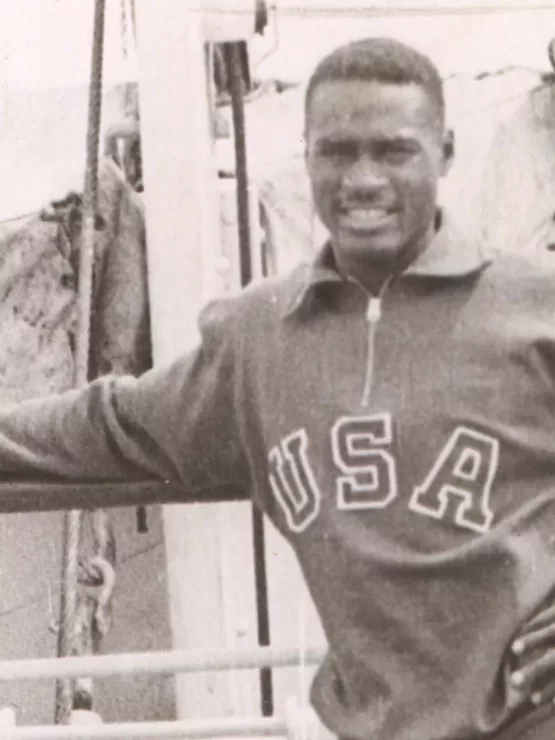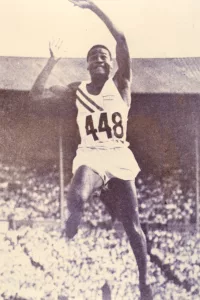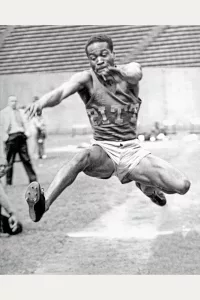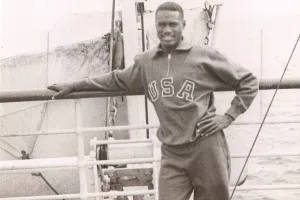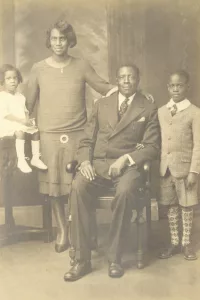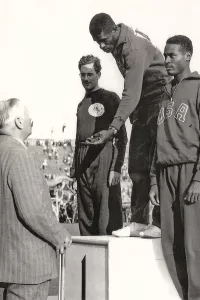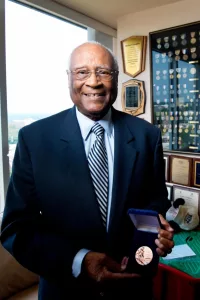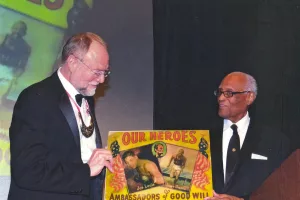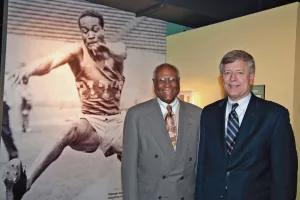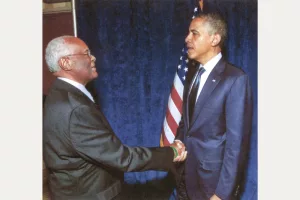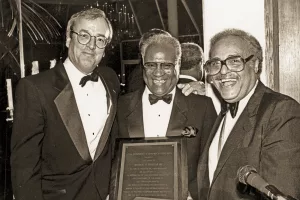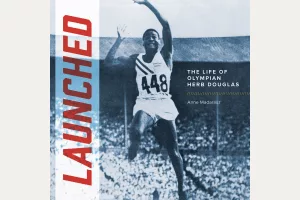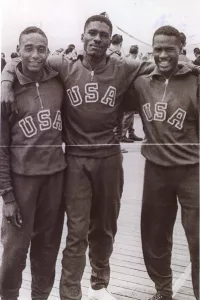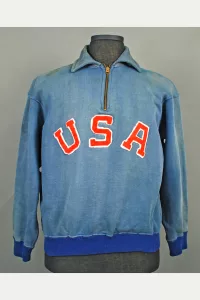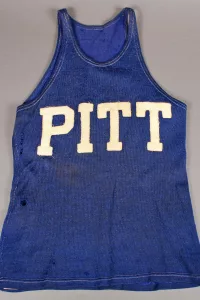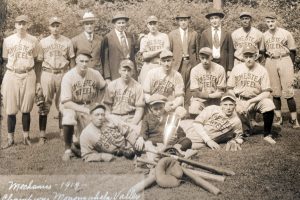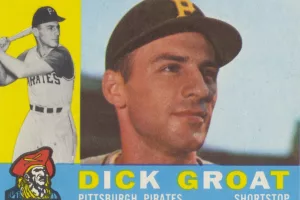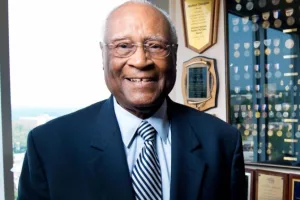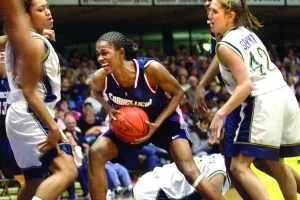On Saturday, April 22, America lost its oldest living African American Olympic athlete and medalist. Our friend and supporter Herb Douglas passed away, here in his hometown of Pittsburgh, having celebrated his 101st birthday on March 9.
Few can match the life or the achievements of Herb Douglas. His Olympic bronze medal, won in the 1948 London Games, put him in an exclusive club. As one of the first African American vice presidents of a Fortune 500 company, a mentor to both Olympic athletes and Black businessmen, a pioneer in the development of the African American market for luxury consumer products, and a philanthropist, he opened doors and changed lives.
His story spanned more than a century, from a childhood spent in the shadow of the booming steel mills of industrial Pittsburgh to a career in the New York corporate offices of the oldest spirits company in the nation. In between, Herb earned an education financed by his athletic talents, developed both a new market and quality jobs for African Americans working for Pabst Beer in the Jim Crow south, and nurtured friendships with the leading athletes, entertainers, and community leaders of his time. Known for incredible tenacity and drive, Douglas turned that trait into fundraising gold, founding an annual gala to honor the legacy of his mentor, Jesse Owens. Herb Douglas’s story provides insight into his character, but also to the forces that shaped American life and culture in the 20th century.
Herb’s family shaped his drive and his positive outlook. While knowledgeable about and respectful of the past, they believed in looking and moving forward. Herb’s father, Herbert P. Douglas, Sr. taught him basic principles about business that guided his son’s decisions throughout his life. And his mother and grandmother instilled in him the importance of family and home. That lesson ran deep, Douglas never sold the house on Hazelwood Avenue purchased by his maternal grandfather more than 100 years ago. No matter how far in life Herb traveled, his family roots and lifelong experiences bound him to home.
On July 31, 1948, Herb Douglas stood on the long jump runway in London, preparing for his final leap in Olympic competition. Years of training shaped Herb Douglas’s performance that day. A world-class athlete, he stood ready to realize the dreams he had dedicated himself to since boyhood. Herb took a deep breath, gathered himself, then sprinted down the runway. As he hit the board and took off Douglas launched himself into a new world, a world that would change him and that he would shape in ways he could not have imagined as a child. A champion athlete, he applied the lessons learned in his family home and in the arena of sport to business and philanthropy.
Douglas came home from London to a segregated society where even Olympic athletes received little fanfare and public recognition and had limited access to education, jobs, and housing. But inspired by Jesse Owens and the generation of African American Olympians who came before him, Douglas developed connections to the Black Olympians that came after him. He kept the stories of his experiences and of the past alive, so that others understood the progress that had been made, but also the work that remained. Herb Douglas became one of the first African American athletes to successfully transition to a position of power and status in the corporate world. Sports became the vehicle Douglas used to launch himself in a new direction. That journey – from one salesman alone on the road in the Deep South to the corporate board room in New York – demonstrates the strength and determination of a single individual. But his example also served as a road map for others to follow.
Douglas never went through a door and closed it behind him, his story is one of individual activism. The son of an extraordinary man, who built a successful small business in a time of little opportunity and kept that business going when he lost his eyesight. Herb learned from his father’s experiences – the skills necessary to problem solve, the importance of setting goals and then focusing on achieving them, the realization that other’s lives are affected by your actions. He came to understand that his success could benefit others and that his example could inspire.
Herb’s life took him far from Pittsburgh – to London to compete, to the Deep South to establish a new market for Black consumers, to the board rooms of New York to model a new type of corporate leadership, to South Africa to honor the man who overcame apartheid, to Washington D.C. to shake the hand of the nation’s first Black president. But no matter how far he traveled, Herb never let Pittsburgh go. His house at 160 Hazelwood Avenue was always home, even as it had served him as a school and a church. The lessons Herb learned there shaped the man he became and launched him on the incredible journey that was his life.
To learn more please visit the Western Pennsylvania Sports Museum at the History Center or order the book, “Launched: The Life of Olympian Herb Douglas.” Douglas’s story will also be part of the upcoming exhibit, The Negro Motorist Green Book opening May 13.
About the Author
Anne Madarasz is the director of the Western Pennsylvania Sports Museum and chief historian at the Heinz History Center.

